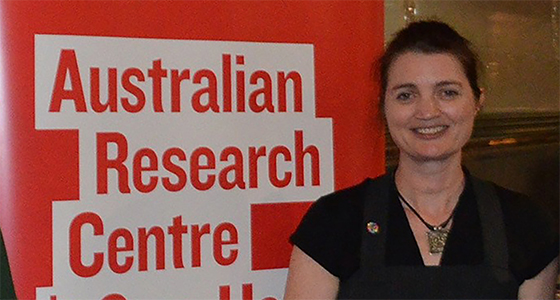
HIV Futures is the most extensive survey of people living with HIV in Australia having began in 1997. This was a time of rapid change and many people who had been unwell for a long time were shifting focus toward living well with HIV. During this time, highly active combination antiretroviral therapy (HAART) had recently become available and he HIV Futures study was devised to capture experiences of people in this new ‘future’ of HIV.
Nearly 25 years have passed since 1997. So, is the tenth version of HIV Futures still relevant today?
The lead researcher Dr Jennifer Power says yes.
“HIV Futures looks at quality of life among people living with HIV,” Dr Power said. “This is more important than ever, at a time when a lot of the focus of the HIV sector is on PrEP, prevention and ending HIV. This study is about caring for people who are living with HIV.”
“There has been a perception that HIV Futures was all about gay and bisexual men, but that is definitely not the case,” said Dr Power. “The survey is very broad. It is about health, wellbeing, relationships, friendships, treatment and care – life experiences that affect everyone.”
Run by the Australian Research Centre in Sex, Health and Society at La Trobe University, HIV Futures is the only survey in Australia that collects data on everyone living with HIV, including women and heterosexual men.
“Positive Life NSW is an enthusiastic supporter of the HIV Futures surveys,” said Jane Costello, CEO of Positive Life NSW.
Futures provides us with an invaluable snapshot of the increasingly diverse community of people living with HIV in Australia. It is a critical piece of research on the health and wellbeing of our community, and gives us an evidence base and data to inform health policy, programs, service delivery and further research,” said Ms Costello.
“We encourage all of our members, and anyone else living with HIV, to participate in the Futures 10 survey.”
The HIV Futures 10 survey has been officially launched, and all members of Positive Life NSW who receive Talkabout by mail have been sent a copy of the survey.
For the first time, the HIV Futures study will include some qualitative research with people who have a migrant background, in the form of peer interviews. However, it is hoped that people living with HIV who have experienced migration, or who are living in Australia temporarily on a student or working visa, will also participate in the survey.
It is vitally important that the survey hears from a diverse range of voices, people of all genders and sexualities as well people from a range of cultural backgrounds.
“We are very keen to hear from people of all ages,” said Dr Power. “We know that young people who are more recently diagnosed have different experiences to older people and those who have been living with HIV for many years.
“We want to learn about ageing and the long-term impact of treatment and co-morbidities, but also what it is like to be living with HIV as a young person or as a person who is middle-aged and raising a family.”
The HIV Futures research team have worked hard to ensure that this survey, the tenth in the series, is shorter and sharper than in the past. It now takes about 20 minutes to fill in and early feedback suggests it is easy to complete.
HIV Futures 10 survey is open until May 2022.
Funded by the Australian Department of Health, its main purpose is to inform the National HIV Strategy. All people living with HIV are invited to take part. Findings from HIV Futures are used to support advocacy and service delivery within the community HIV sector, as well as providing data to inform quality of life and stigma-reduction targets in the national and state HIV strategies.
For more information or to fill in the survey online visit www.hivfutures.org.au or to get in touch to order a hardcopy of the survey via email to hivfutures@latrobe.edu.au or phone 1800 064 398.
Published in Talkabout #198 August 2021






